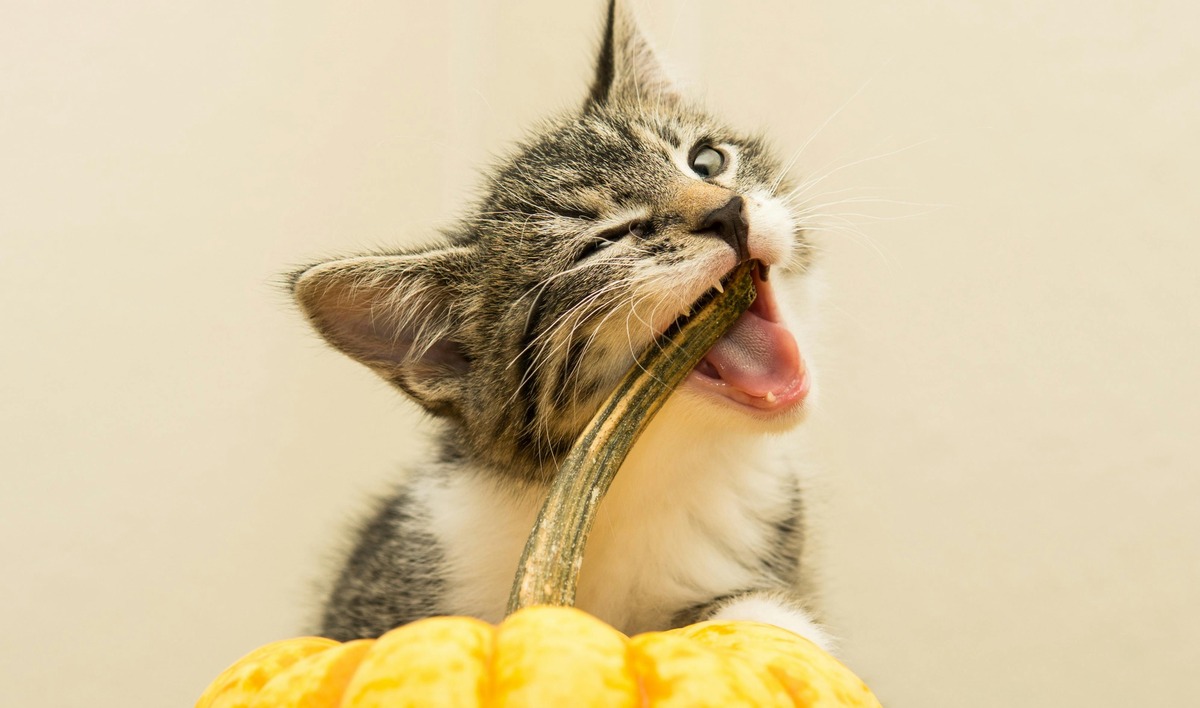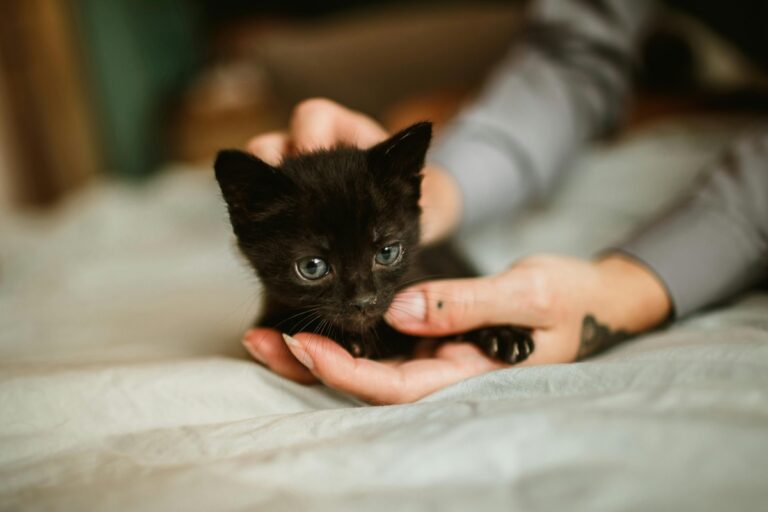7 Ways to Stop Your Cat from Begging for Food
Cats can be persistent beggars when they develop the habit of demanding food, whether it’s at the dinner table, near their food bowl, or while you’re preparing meals. While their big eyes and loud meows can be hard to ignore, constant begging can lead to overeating, weight gain, and behavioral issues.
If your cat is always asking for food—even when they’re not hungry—here are seven effective ways to stop your cat from begging for food and establish healthier eating habits.
1. Stick to a Strict Feeding Schedule
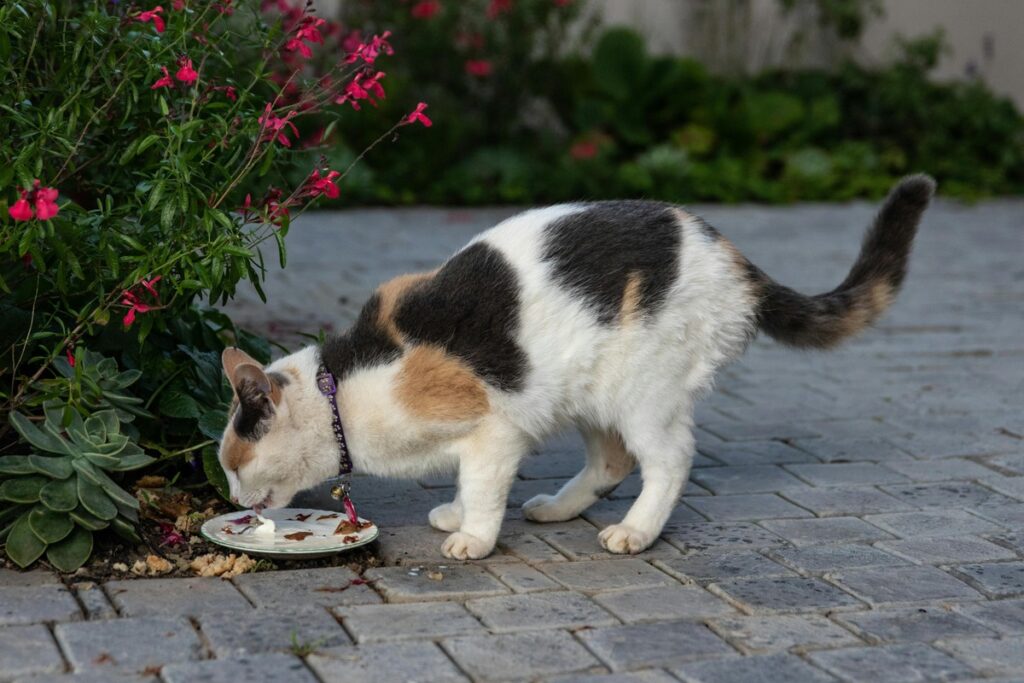
Cats thrive on routine, and feeding them at the same times every day helps regulate their hunger and expectations. If your cat knows when to expect their meals, they are less likely to beg randomly throughout the day.
What to do:
• Feed your cat at the same time each morning and evening.
• Use an automatic feeder if your cat wakes you up early begging for food.
• Avoid giving extra snacks between meals, as this can encourage more begging.
2. Ignore the Begging Behavior
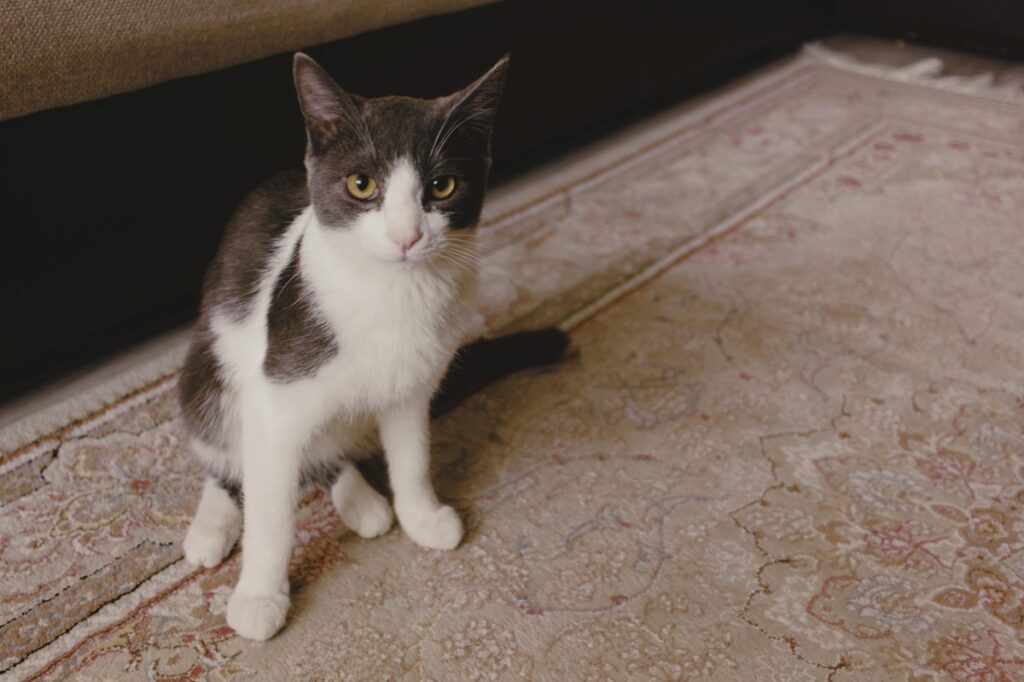
If your cat has learned that begging gets them food, they will keep doing it. The best way to break this habit is to ignore them completely when they beg. Even negative attention, like saying “no,” can reinforce their behavior.
What to do:
• Avoid eye contact when your cat meows for food.
• Walk away or distract yourself instead of engaging with them.
• Do not feed them as a way to make them stop begging—this reinforces the habit.
3. Ensure They’re Eating a Nutritious, Satisfying Diet
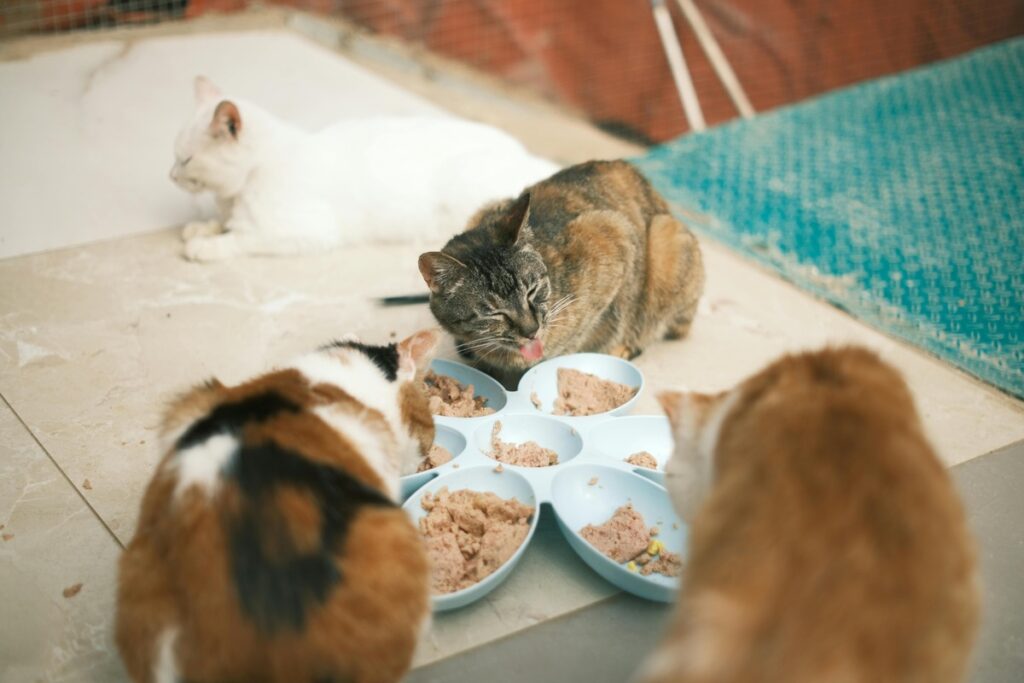
If your cat is always hungry, they might not be getting enough nutrients from their current food. Some low-quality cat foods contain too many fillers and not enough protein, leaving your cat feeling unsatisfied.
What to do:
• Choose a high-protein, grain-free cat food to keep them full longer.
• Consider adding wet food to their diet, as it’s more filling than dry kibble.
• Talk to your vet if your cat’s hunger seems excessive, as medical issues like diabetes or hyperthyroidism can cause increased appetite.
4. Use Puzzle Feeders or Slow Feed Bowls

Some cats eat too fast, which can make them feel hungry sooner. Using puzzle feeders or slow-feed bowls forces your cat to eat more slowly, making mealtime last longer and reducing begging behavior.
What to do:
• Try a puzzle feeder to make eating more mentally stimulating.
• Use a slow-feed bowl to prevent gulping and extend feeding time.
• Scatter small amounts of kibble around the house to mimic natural hunting behaviors.
5. Give Your Cat More Attention and Playtime
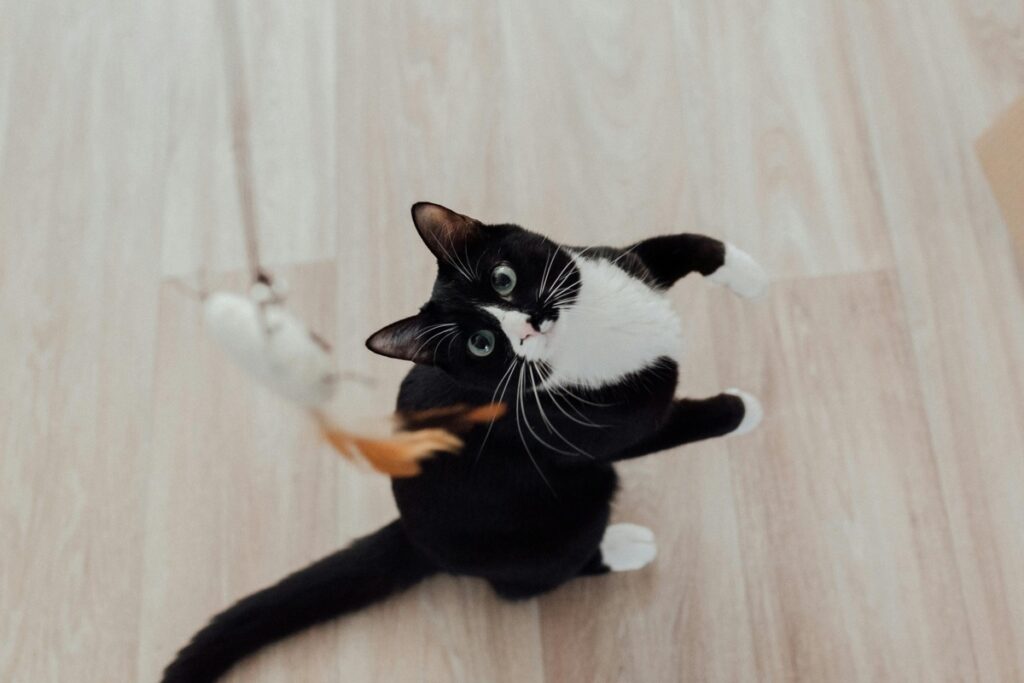
Some cats beg for food out of boredom, not hunger. If your cat constantly asks for food, they might just need mental stimulation or exercise to keep them entertained.
What to do:
• Increase daily play sessions to distract them from food.
• Use interactive toys, feather wands, or laser pointers to keep them engaged.
• Try food-free rewards, like petting or verbal praise, when they stop begging.
6. Keep Human Food Out of Reach
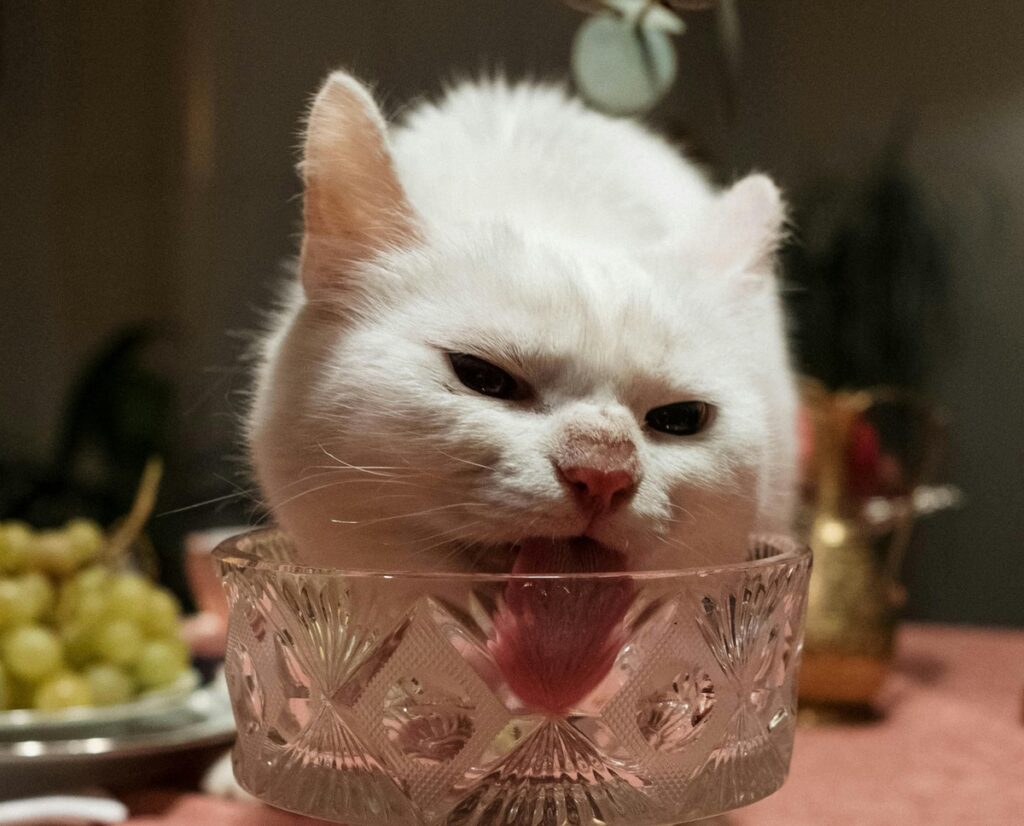
If your cat has learned to beg for table scraps, they might see human food as a normal part of their diet. Even if you don’t give them food directly, they might be jumping on counters or stealing leftovers, reinforcing the behavior.
What to do:
• Never feed your cat table scraps, no matter how much they beg.
• Keep food covered and stored away so they don’t have access to it.
• If they jump on the table or counter, firmly remove them without giving attention.
7. Rule Out Medical Issues
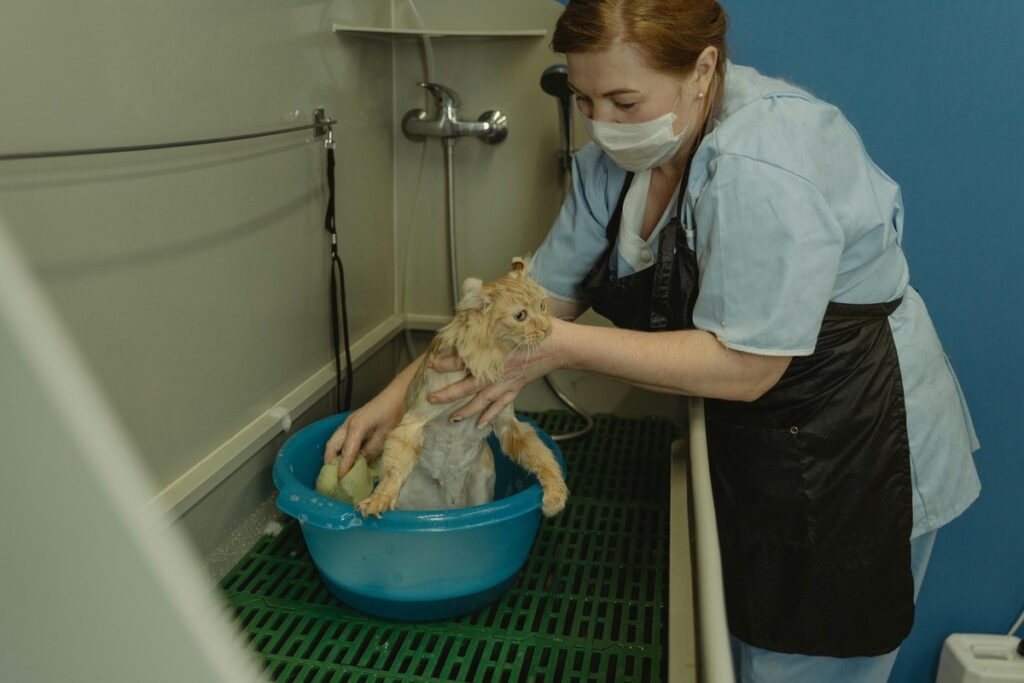
If your cat is constantly hungry and begging, even after eating, they may have an underlying medical condition. Diseases like hyperthyroidism, diabetes, or intestinal parasites can cause increased appetite and food obsession.
What to do:
• If begging is sudden or extreme, take your cat to the vet for a checkup.
• Monitor for other symptoms like weight loss, vomiting, or excessive thirst.
• Follow the vet’s recommendations for adjusting diet or treatment if needed.
Break the Begging Habit
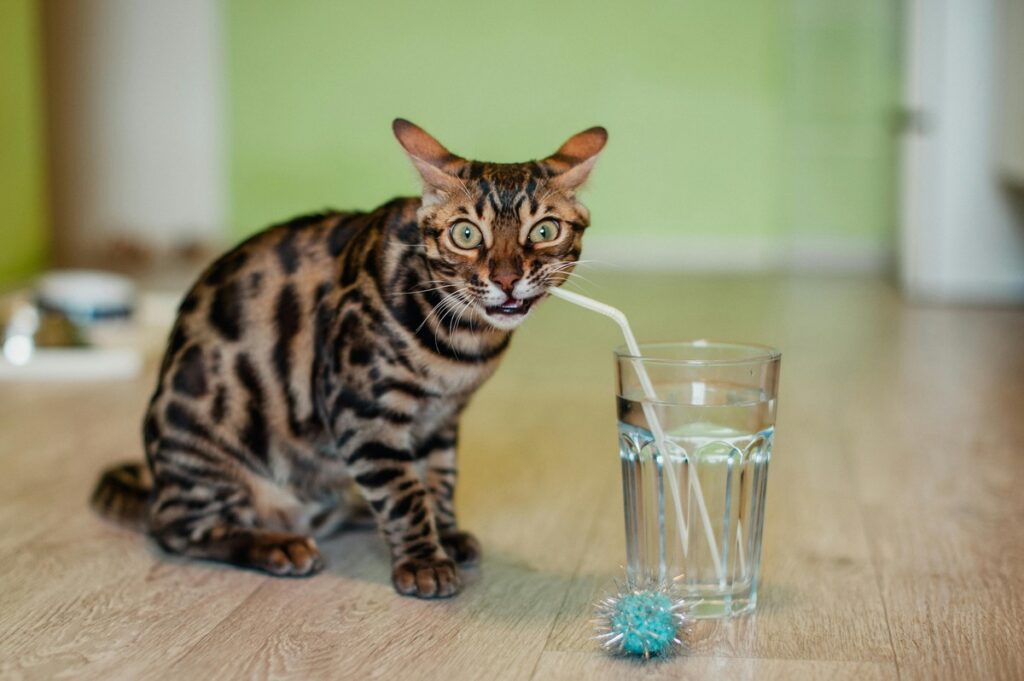
Stopping your cat from begging for food takes consistency, patience, and a structured approach. By sticking to a schedule, ignoring bad behavior, feeding high-quality meals, and providing enough stimulation, you can break the habit and help your cat develop healthier eating patterns.
With time and the right approach, your cat will stop associating mealtime with constant begging and learn to respect their feeding routine—making life easier for both of you!

